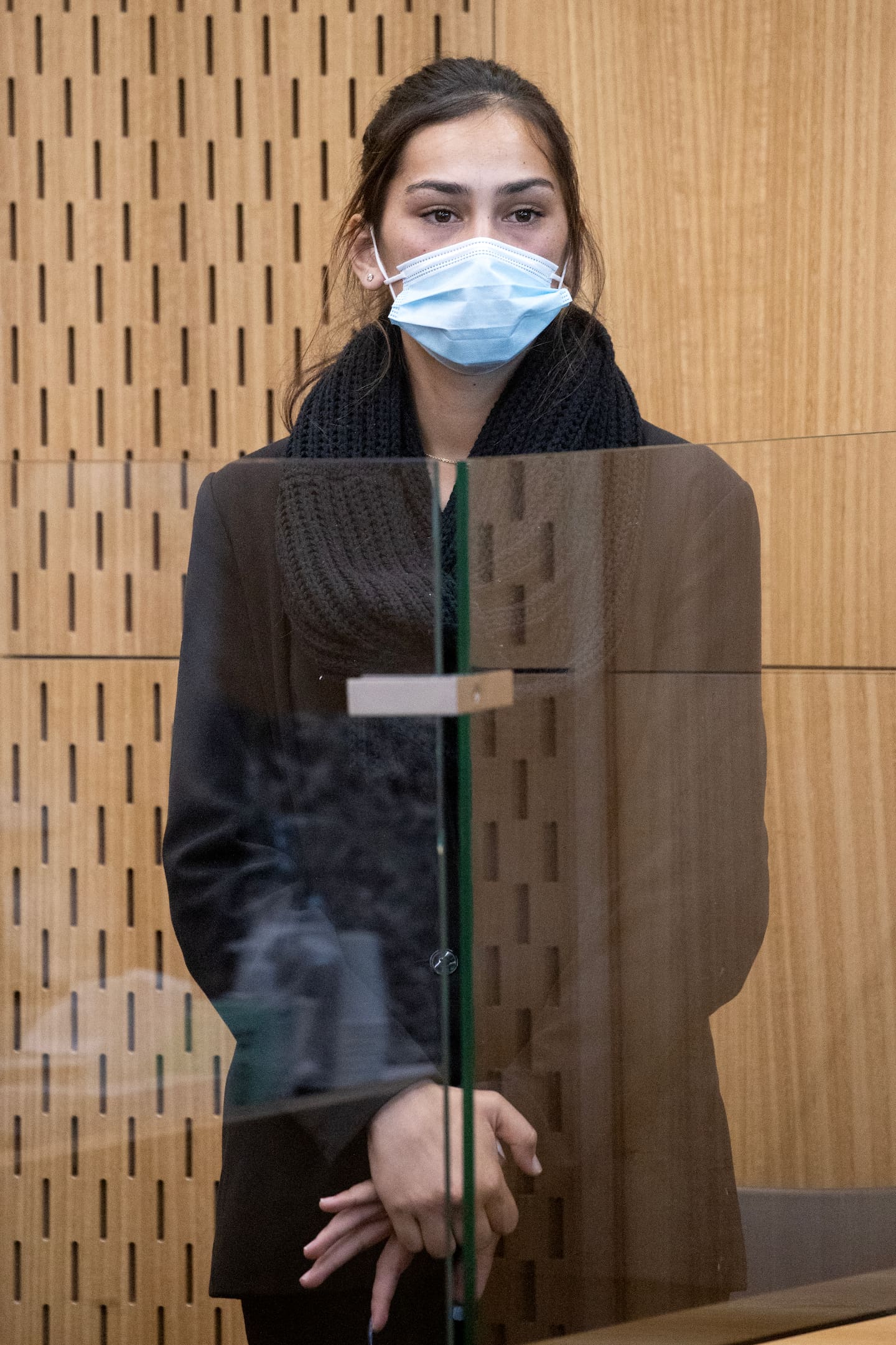
An Ashburton woman who fatally stabbed her partner in the head - then tried to convince a jury he’d inflicted the 12cm wound himself - has been jailed for more than four years.
Peter Tawhiwhiorangi Hemi, 23, died at his McDonald St home on November 8, 2019.
Days later his partner, Kia-ara Richardson, then 19, was charged with murder.
At her trial in the High Court at Christchurch Crown Prosecutor Andrew McRae outlined the police narrative of the killing.
“In a moment of extreme anger borne out of the hurtful verbal tirade, she stabbed Mr Hemi in the back of the head,” McRae said.
“It penetrated his skull … the estimated depth of the wound was 13-15cm.
“[Richardson] pulled that knife out two or three seconds later. She got out of the car, slammed the door shut, walked to the fence line of the property and disposed of the knife by throwing it in the long grass.”
Richardson claimed Hemi stabbed himself in the head.
The knife was never found.

Peter Hemi. Photo / Supplied
- Mum of man fatally stabbed by partner speaks of 'horrible' loss
- Murder accused claims her partner stabbed himself in the head during fatal argument
At the end of the trial the jury found Richardson not guilty of murder - but guilty of manslaughter.
Richardson was sentenced by Justice Cameron Mander this morning.
He had been provided Victim Impact Statements from Hemi’s mum, grandfather and the mothers of his three children.
Hemi was killed just two weeks after the birth of the youngest child.
“They all share the same grief, trauma and pain. Mr Hemi was much loved by his family and whānau and is sorely missed,” said the judge.
“For his mother, she will never get over the loss of her son. His children will never again have their father and must grow up without him.
“You have caused deep, enduring harm. No sentence that I can impose can begin to mitigate their loss.”
Justice Mander said there were a number of aggravating features to Richardson’s offending including the use of a weapon.
“Without resort to such a lethal instrument, which you were in the habit of carrying, Mr Hemi would obviously not have died,” he said.
“Related to your use of a knife is the attack to the back of his neck and head. Because of the vulnerable location in which you struck Mr Hemi, the outcome of such an attack can have, as was the case here, catastrophic consequences.
Hemi’s “vulnerability” was also a relevant factor.
“That factor was not present in its orthodox sense, in terms of Mr Hemi’s age, physical size or disability, but I accept that in his seated position, he would have been facing forward, unarmed,” the judge explained.
“It would appear from the position and angle of the wound that the attack from behind likely caught him completely by surprise.”

Kia-ara Richardson on the first day of her trial for the alleged murder of Peter Hemi. Photo / George Heard
The jury also heard that Richardson and Hemi had a “toxic” relationship.
“You sought to describe Mr Hemi as having something of a split personality and that Mr Hemi could at times be abusive and violent and, at other times, loving and supportive,” said Justice Mander.
“That may have been the case, but it is largely uncorroborated. In some measure, that description has echoes of other witnesses’ observations of you as a couple and of how not just he but you both mutually behaved towards each other.”
Richardson’s age and personal circumstances had to be considered before Justice Mander could reach a sentencing decision.
She was 19 when Hemi died and had no previous convictions.
Her childhood environment was one of “deprivation, family neglect and abuse”.
“Drugs, particularly cannabis and alcohol, and gangs were features of your everyday young life. This necessitated state involvement which started when you were just an infant,” said the judge.
“Domestic violence was a common and accepted occurrence in your parents’ relationship. You moved house frequently, and you began taking drugs at a very young age.
“You were involved in an abusive relationship when just a teenager, at which time you began using methamphetamine. You managed to break out of that relationship and move to the South Island, where you met Mr Hemi.”

Justice Cameron Mande. Photo / NZ Herald
“These features of your background do not bear directly on your actions in killing Mr Hemi. However, in a broader sense, there is some connection between your circumstances and outlook at the time of this offending and your upbringing and early life experience, which included exposure to family violence and lack of social support,” Justice Mander told the offender.
“Your limited agency and ability to exercise much lifestyle choice appears to have made you reliant on Mr Hemi in what was a mutually abusive relationship that appears to have mirrored much of your life experience.”
A pre-sentence report based on interviews with Richardson revealed she “immediately regretted her actions” after Hemi died but since then had been “unwilling to accept responsibility” for his death.
“Because you continue to deny the offending in the face of what is an overwhelming case, any discrete credit for remorse is unavailable,” said Justice Mander.
After taking all factors into account, he sentenced Richardson to four years and three months’ imprisonment.
He did not set a minimum term of imprisonment.
Anna Leask is a Christchurch-based reporter who covers national crime and justice. She joined the Herald in 2008 and has worked as a journalist for 18 years with a particular focus on family violence, child abuse, sexual violence, homicides, mental health and youth crime. She writes, hosts and produces the award-winning podcast A Moment In Crime, released monthly on nzherald.co.nz
Take your Radio, Podcasts and Music with you









